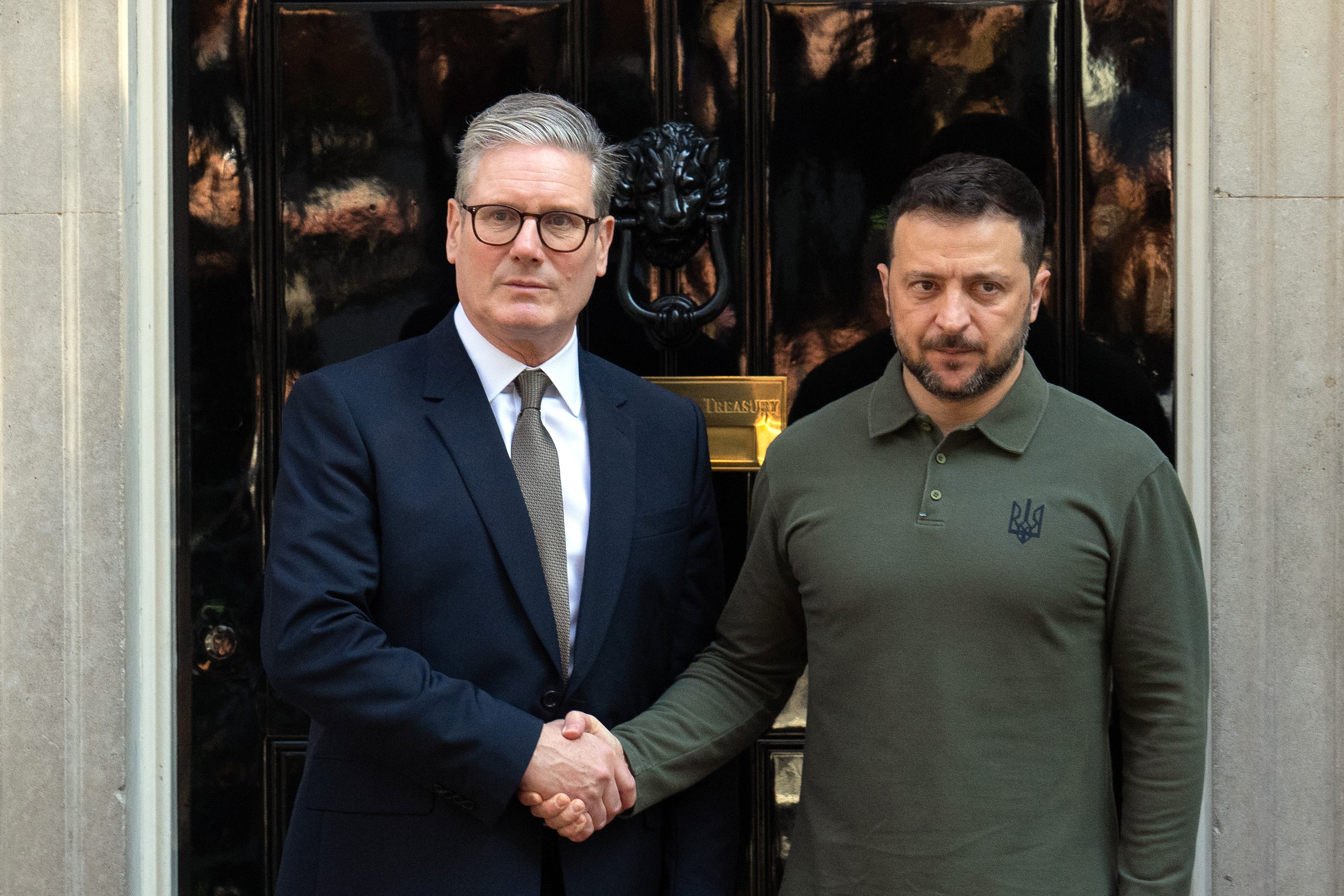Starmer has proved himself good at diplomatic speed dating – but the hard work is only just beginning...
Striking a new tone on ‘resetting’ Britain’s relationship with the EU was the easy bit for the Labour leader. Phase two, the detailed policy, will be much more difficult, writes Andrew Grice


It was mission accomplished for the first phase of Keir Starmer’s “reset” of Britain’s relations with the EU at the European Political Community summit at Blenheim Palace.
The prime minister convinced more than 40 European leaders that he is deadly serious about transforming the relationship. He won their trust by promising not to do something Labour was never going to do: withdraw from the European Convention on Human Rights. But it was a neat contrast with the Conservatives’ confrontational approach to the EU, and it worked. “It was an important moment,” said one EU diplomat.
So, Starmer proved good at diplomatic speed dating and has already learnt that it involves seeking strange bedfellows. With France’s Emmanuel Macron and Germany’s Olaf Scholz distracted by domestic turmoil, Starmer cosied up to Giorgia Meloni, Italy’s populist-nationalist prime minister, extending the relationship begun by Rishi Sunak.
The other key ally for Starmer’s “reset” will be Ursula von der Leyen, who was not at Blenheim as she was securing her re-election as president of the European Commission.
Starmer told Meloni that he had had “hard conversations” with his own party on the topic of immigration. He garnered the “tough on immigration” headlines he wanted by being open to a version of Italy’s scheme to process asylum claims in Albania.
Using a third country is seen by 15 EU countries as a possible solution to the bloc’s migration crisis, so Starmer wants to go with the flow. His aides insist it is not the same as the Tories’ discredited and now scrapped Rwanda plan; Labour would go ahead with offshore processing only if it was a deterrent, cost-effective, and complied with international law.
Such a scheme looks unlikely to be adopted by the UK, though being open-minded about it keeps Starmer at the EU table and gives the impression of activity while Labour works out a plan to stop the boats.
But striking a new tone was the easy bit for Starmer. Phase two, the detailed policy, will be much more difficult. He admitted at his post-summit press conference: “We understand the challenge and constraints of any discussion.” That is because Labour has ruled out a return to the single market or customs union, along with freedom of movement.
Patrick Diamond, a former adviser to Tony Blair and Gordon Brown and a professor of public policy at Queen Mary University of London, told me: “As ever, the EU concern is with British ‘cherry picking’. The challenge for Starmer is that neither the French nor the German government is strong politically, which may hinder progress.
“Macron will struggle to achieve much for the remainder of his presidency. There may be scope for an agreement with the EU on [asylum seeker] returns, but it will take time to negotiate. Starmer will focus initially on tougher border controls and cracking down on people-smuggling gangs through joint action with the French.”
Before the election, Labour insiders suggested they might be prepared to take some EU migrants as quid pro quo for an EU-wide returns deal. Labour ministers might still be prepared to admit the family members of some EU migrants already in the UK, but are more nervous than previously about accepting an EU quota.
Why? Because Nigel Farage’s Reform UK came in second place behind Labour in 89 seats. Senior Labour figures suspect that Reform will pose a threat at the 2029 election, since it will target a Labour ruling establishment and go beyond the EU, immigration and the economy to appeal to voters alienated by the political system.
With incumbents being toppled around the world, Labour will try to avoid that fate by fighting the next election like an insurgent. It is the right approach – but hard to do while in power.
Starmer wants to forge much closer trading links with the EU to boost economic growth. “We have a mandate for this from the election,” one close ally argued – even though Labour said little about the EU during the campaign.
So, Starmer’s opening offer will be a wide-ranging security deal, deploying the UK’s big selling points of defence and intelligence. On trade, the UK will prioritise a deal on agrifoods, while the EU wants a mobility scheme for 18- to 30-year-olds, which – although rejected by Labour before the election – could form part of the reset.
The PM will need to “sell” his vision to British voters as well as the EU. The new “Farage factor” will make it a harder sell. Reform and the Tories will accuse Labour of planning to rejoin the EU (not true, but some mud will stick).
Starmer should remember that having pro-EU instincts was not enough for Blair, who “sold” the UK to the EU, as Starmer did on Thursday, but did not “sell” the EU to British voters; the end result was the vote for Brexit in 2016.
Yet Starmer might literally possess a Trump card Blair lacked – Donald Trump.
If, as most UK politicians now expect, Trump returns as president, the UK and the US will mouth the usual platitude about the special relationship. But the British public might come to realise that, with a dangerous Russia on Europe’s borders and Trump diluting US support for Nato, the special relationship most in Britain’s national interest will be the one we have with the EU.






Join our commenting forum
Join thought-provoking conversations, follow other Independent readers and see their replies
12Comments